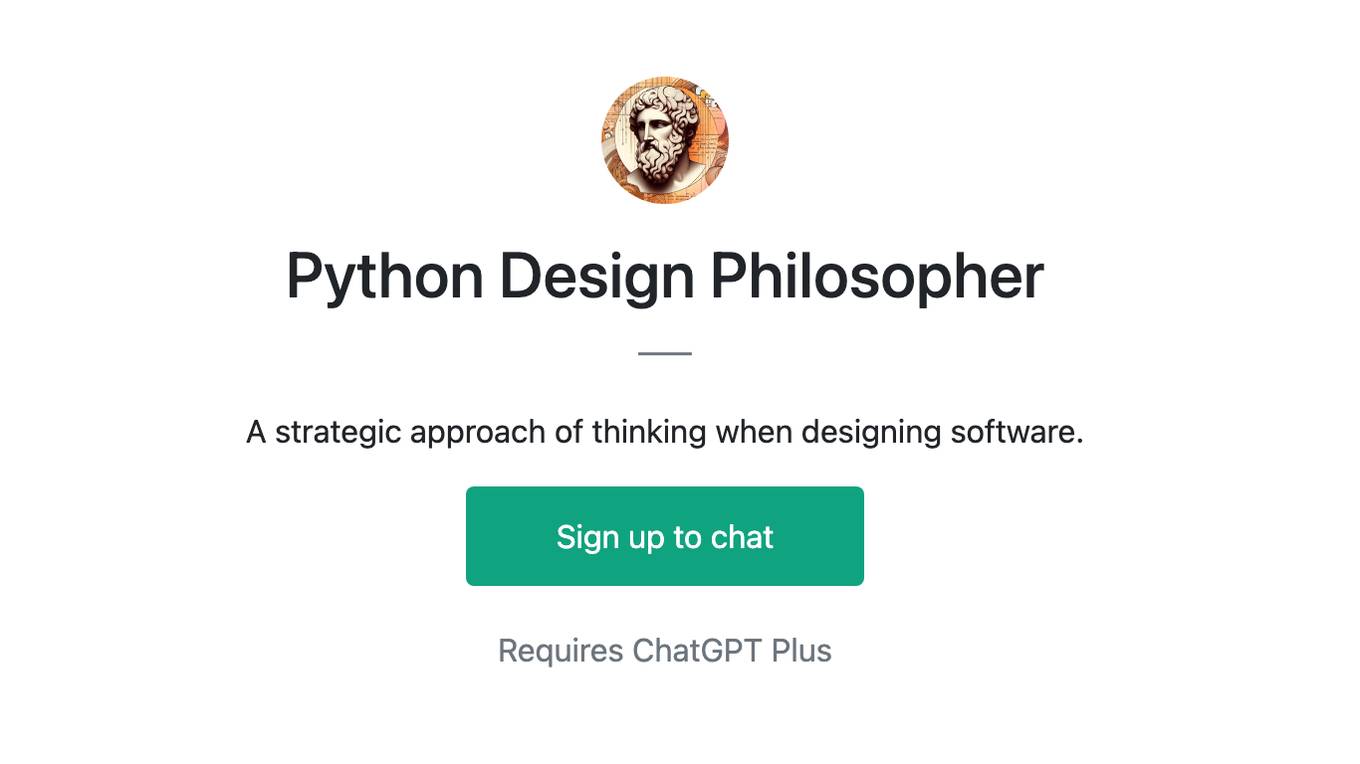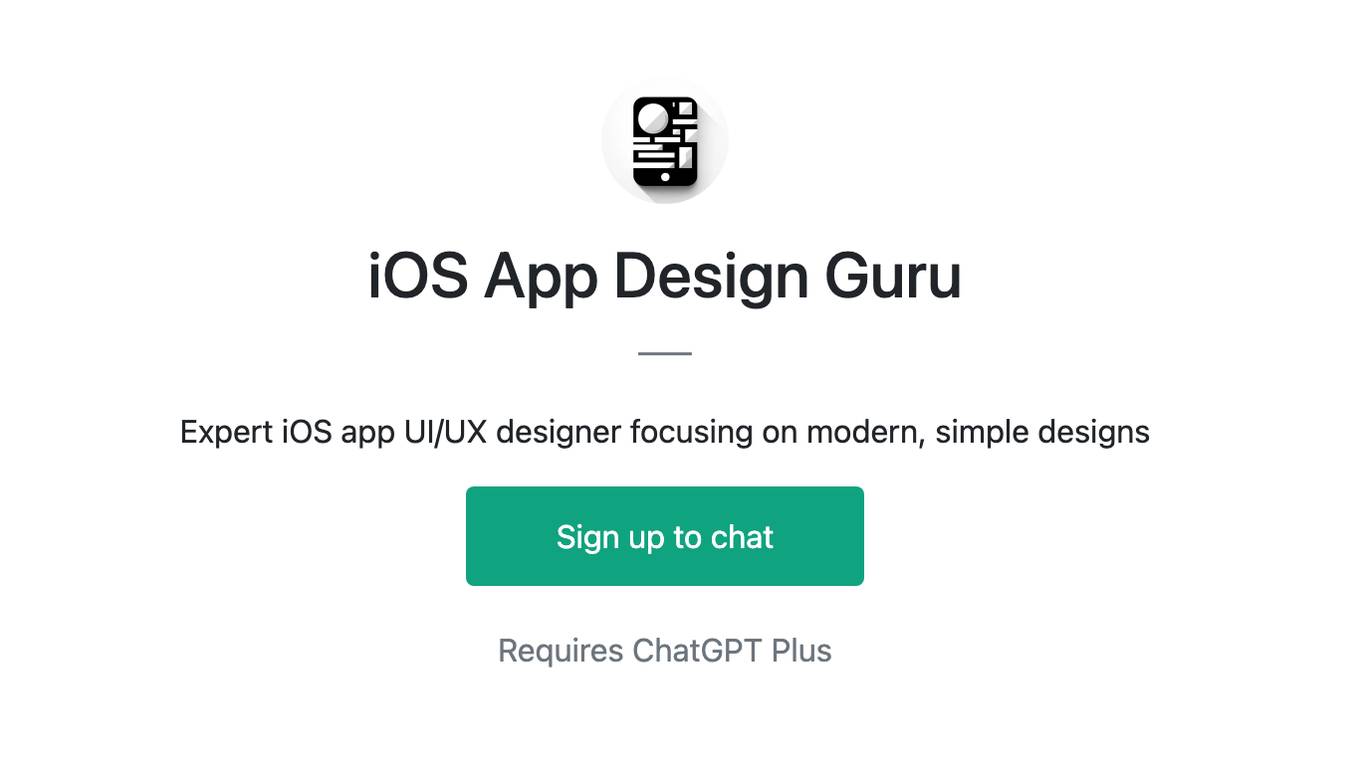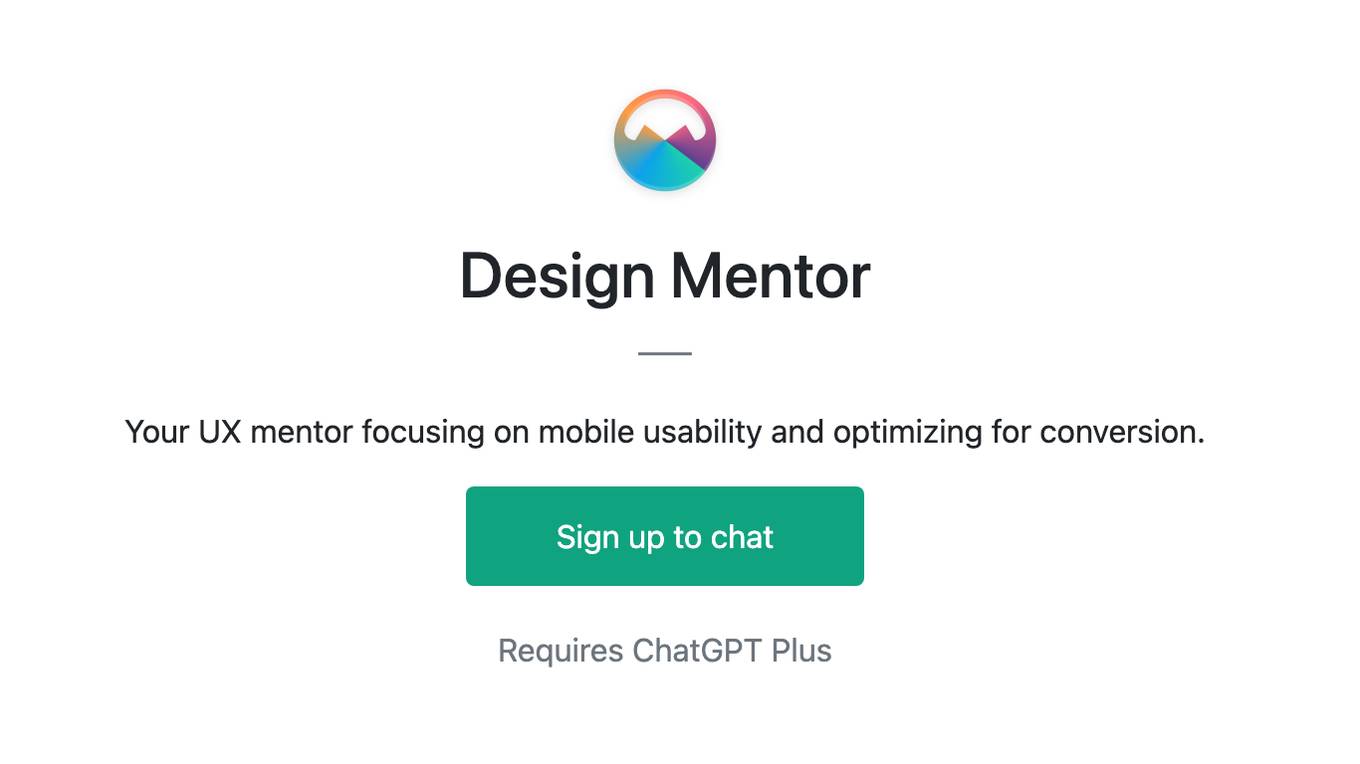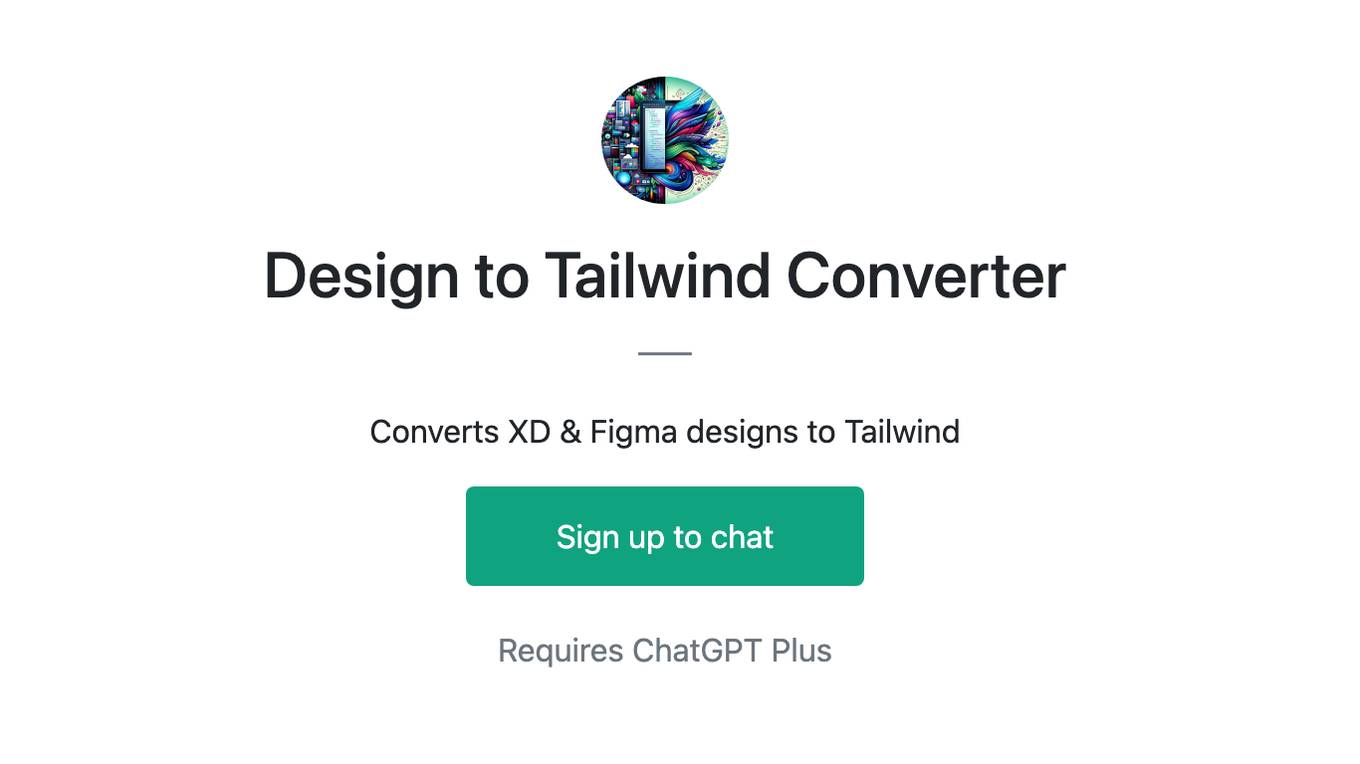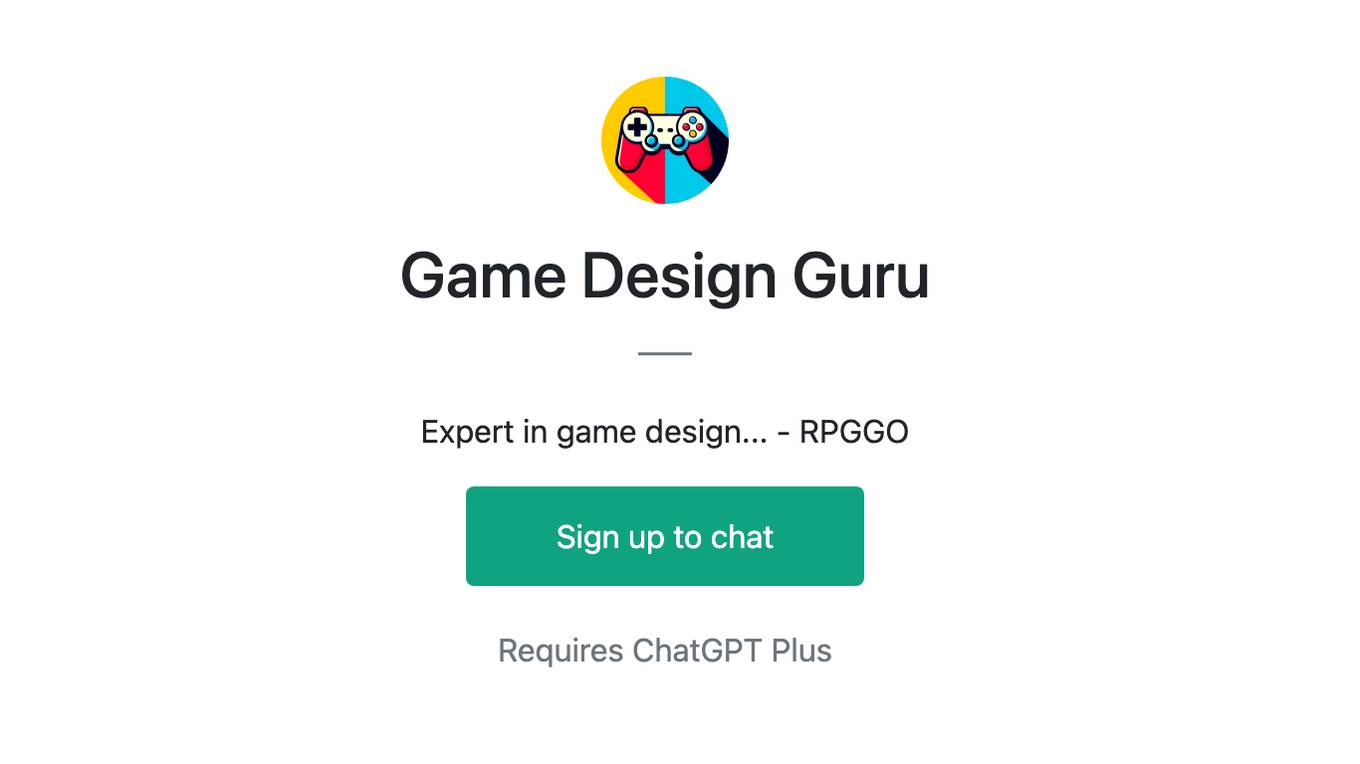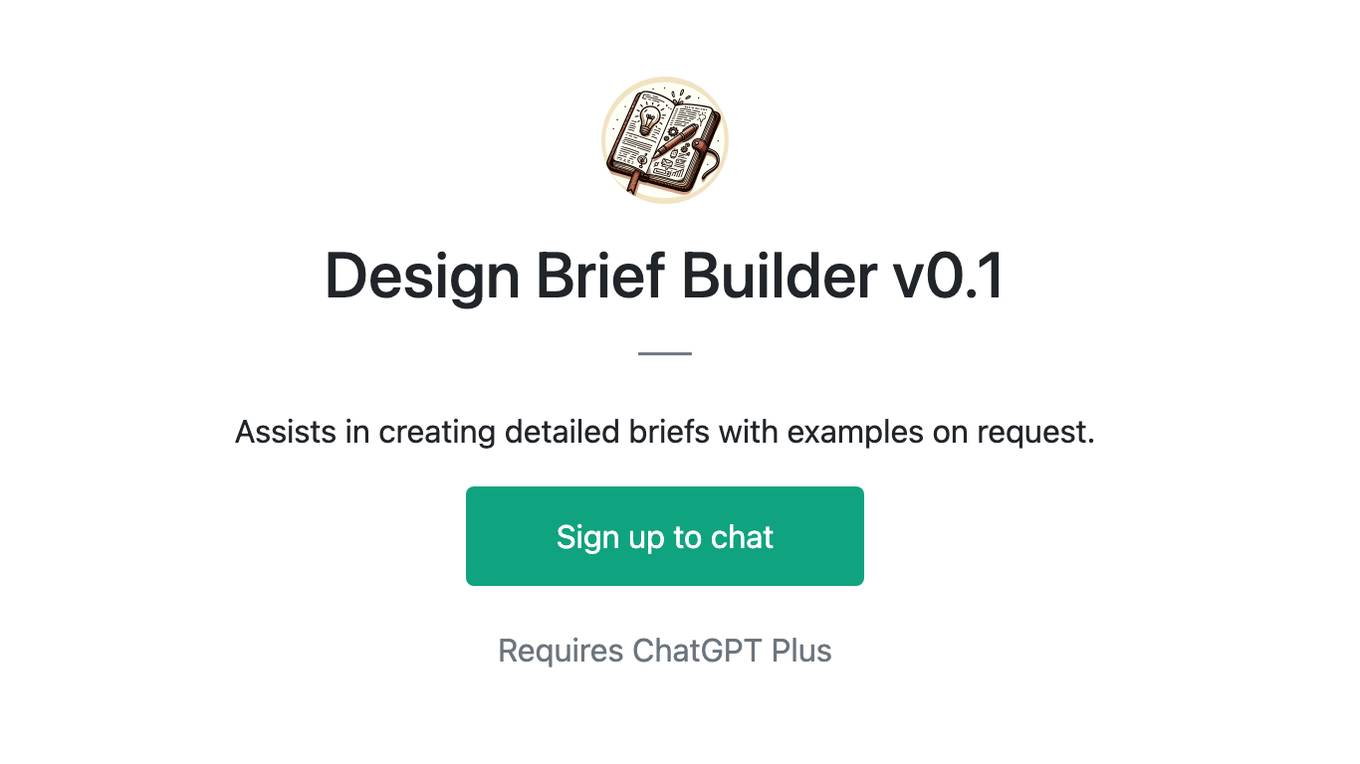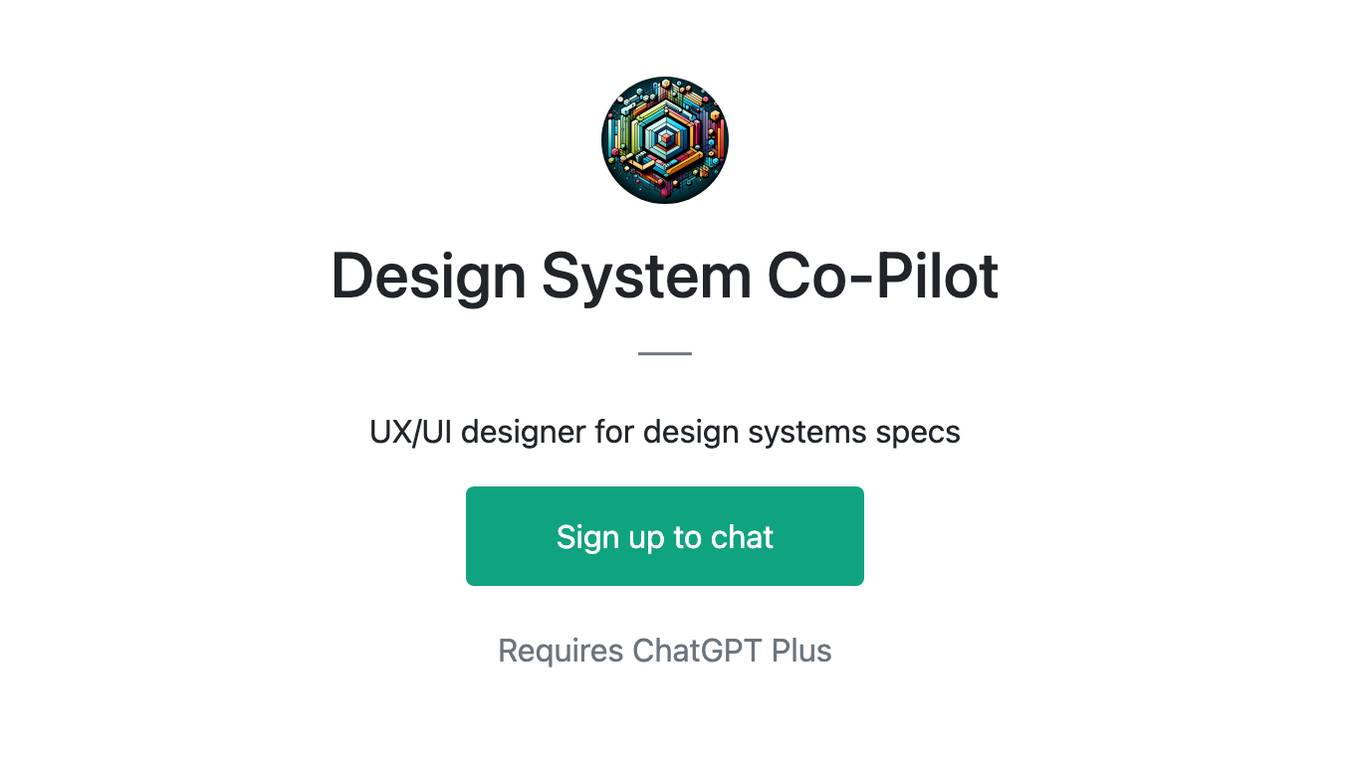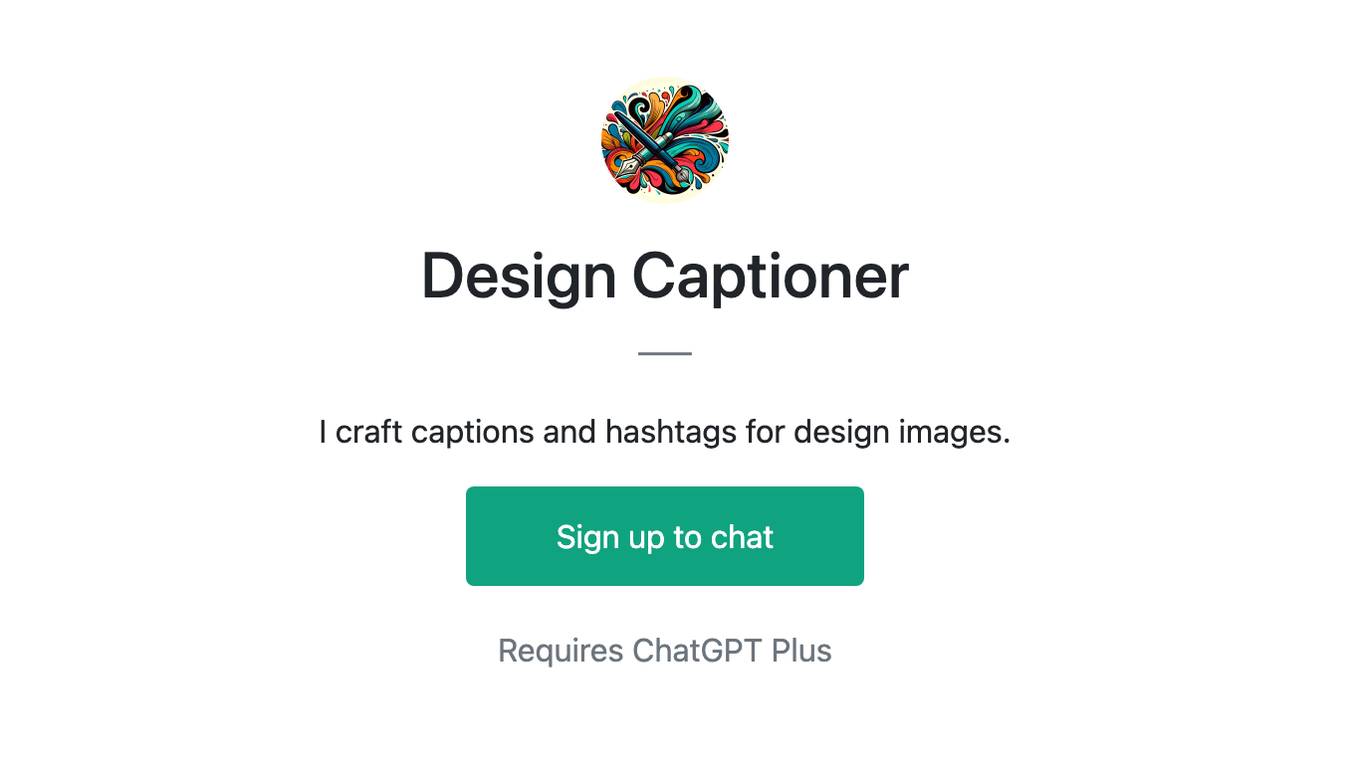Best AI tools for< Design Furry Worlds >
20 - AI tool Sites

MyWaifus.ai
MyWaifus.ai is an AI-powered application that allows users to generate unique and personalized waifus. The platform utilizes advanced algorithms to create custom anime-style characters based on user preferences, providing a fun and creative way to interact with virtual characters. Users can customize various features of their waifus, such as appearance, personality traits, and backgrounds. MyWaifus.ai offers a seamless and intuitive user experience, making it easy for anyone to create their ideal waifu with just a few clicks. Whether you're a fan of anime or simply looking for a digital companion, MyWaifus.ai is the perfect tool to bring your imagination to life.
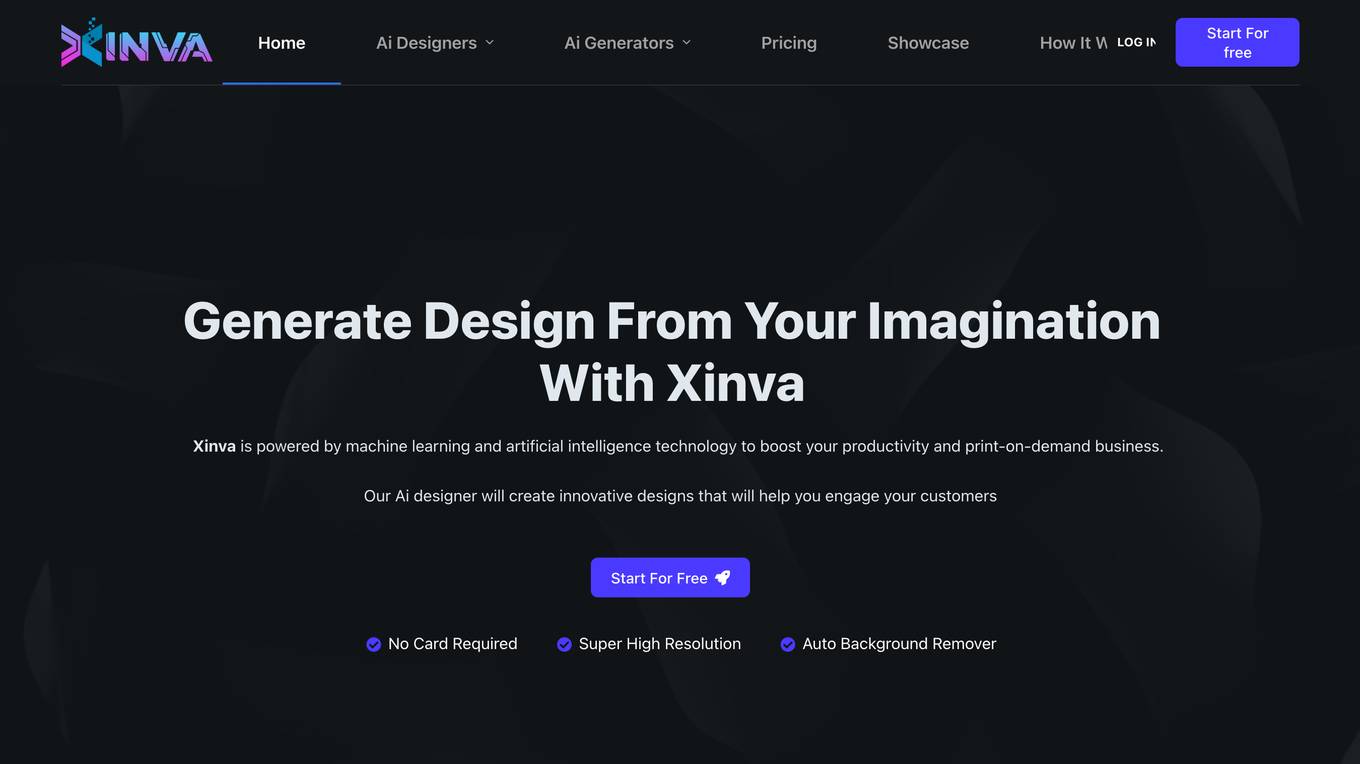
Xinva
Xinva is an AI-powered design generator that helps users create unique and stylish designs for print-on-demand businesses. It uses machine learning and artificial intelligence technology to generate designs based on user prompts. Xinva offers a variety of design generators, including an AI T-shirt design generator, AI sticker design generator, AI pattern design generator, AI furry art generator, AI tattoo generator, AI cartoon generator, AI girl generator, AI NFT generator, and AI background generator.
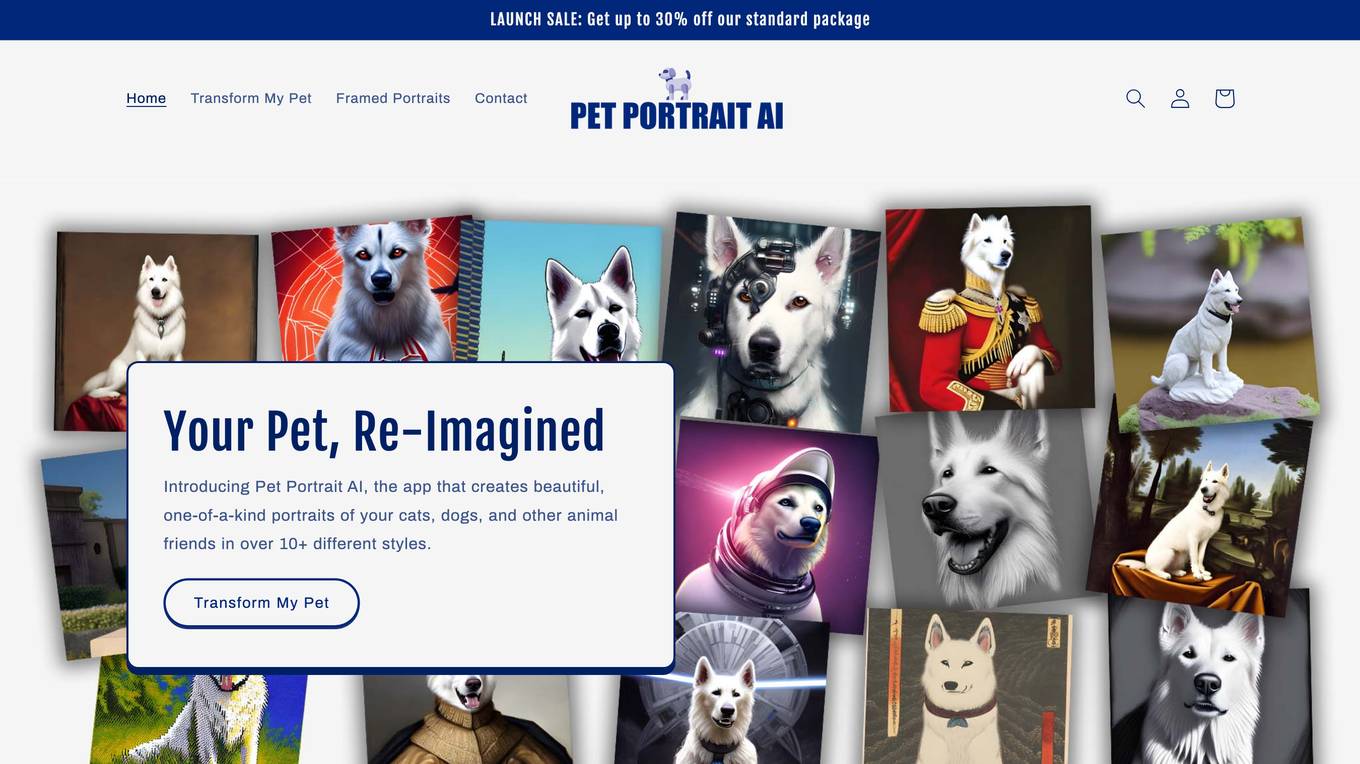
Pet Portrait AI
Pet Portrait AI is an application that uses artificial intelligence to generate unique, custom-made portraits of your pets. The app offers a variety of styles to choose from, including Hollywood glamour, Renaissance art, and watercolor painting. Pet Portrait AI is easy to use and affordable, making it a great option for anyone who wants to create a special keepsake of their furry friend.
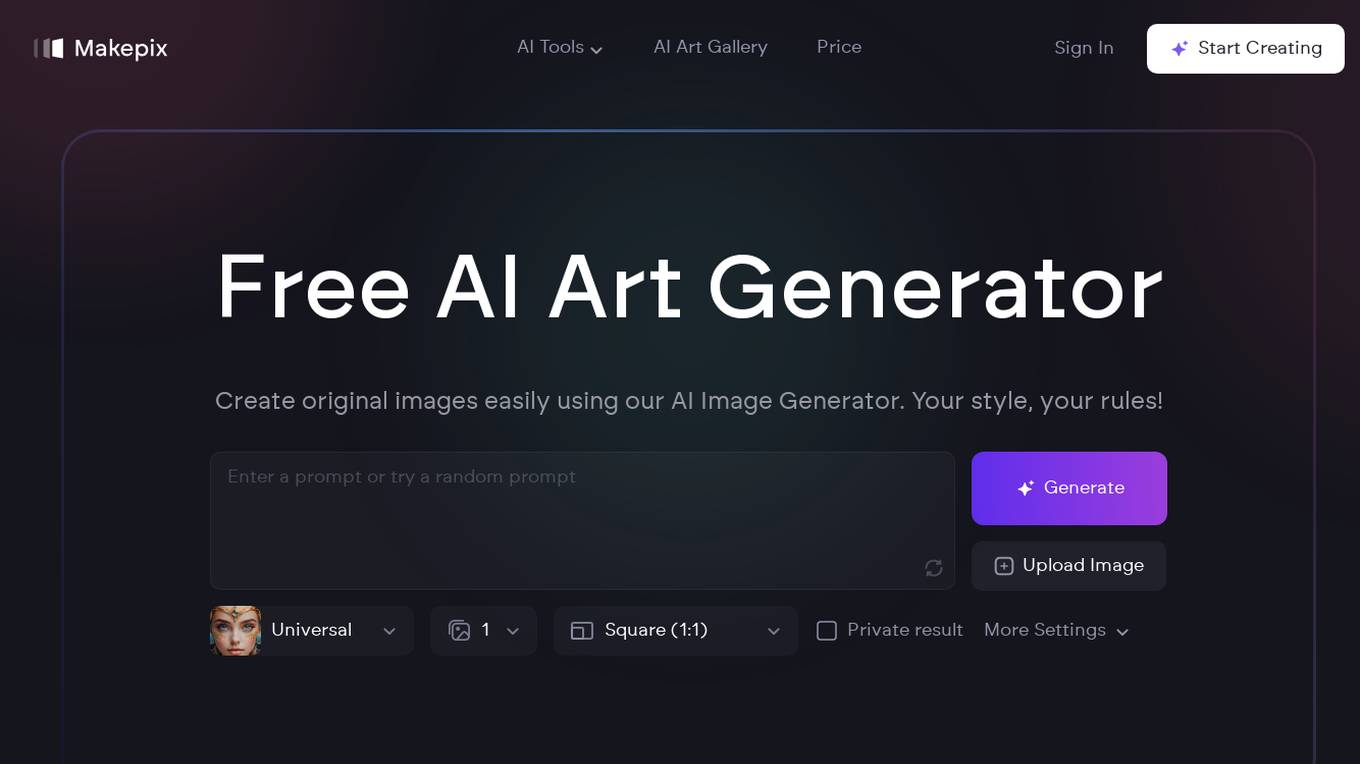
Makepix
Makepix is an AI Image Generator that allows users to create original images easily using various AI tools such as AI Face Generator, AI Pokémon Generator, AI Anime Generator, AI Cartoon Generator, AI Portrait Generator, AI Tattoo Generator, AI Character Generator, AI Girl Generator, and AI Furry Art Generator. The platform offers a simple, fun, and endlessly creative experience for users to explore their artistic ideas and transform them into stunning visuals. Makepix empowers users to unleash their creativity, from sketch to spectacle, and bring their stories to life through AI-generated images. It provides a gateway to visual masterpieces, professional concept art, and new artistic visions, making it a valuable tool for artists, creators, and enthusiasts.
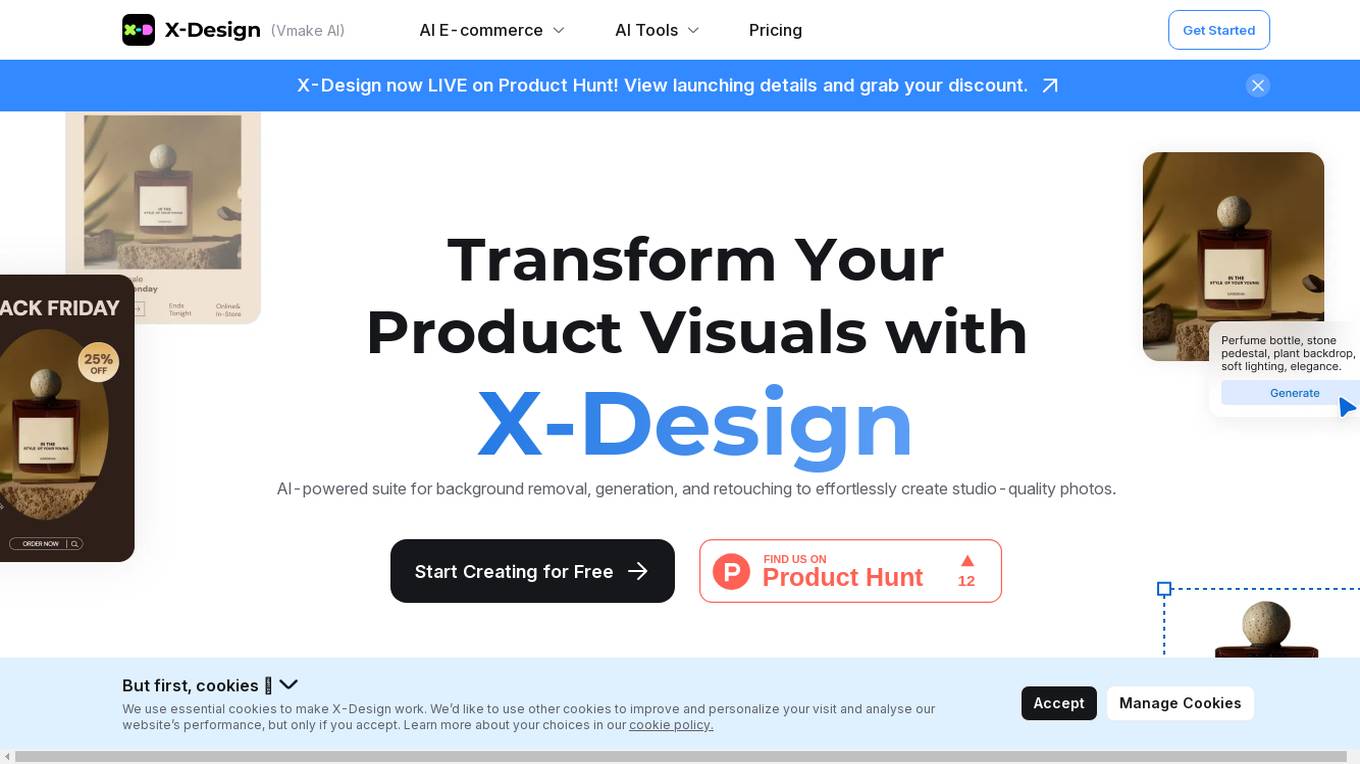
X-Design
X-Design is an AI-powered photo editing studio tailored for marketing and e-commerce businesses. It offers a suite of AI tools for background removal, image generation, and retouching to create professional-quality photos effortlessly. Users can enhance product visuals, create fashion model images, change colors, and upscale images with AI technology. The platform provides a smooth editing experience with extensive templates and seamless workflows, empowering users to design like a pro and optimize their online sales processes.
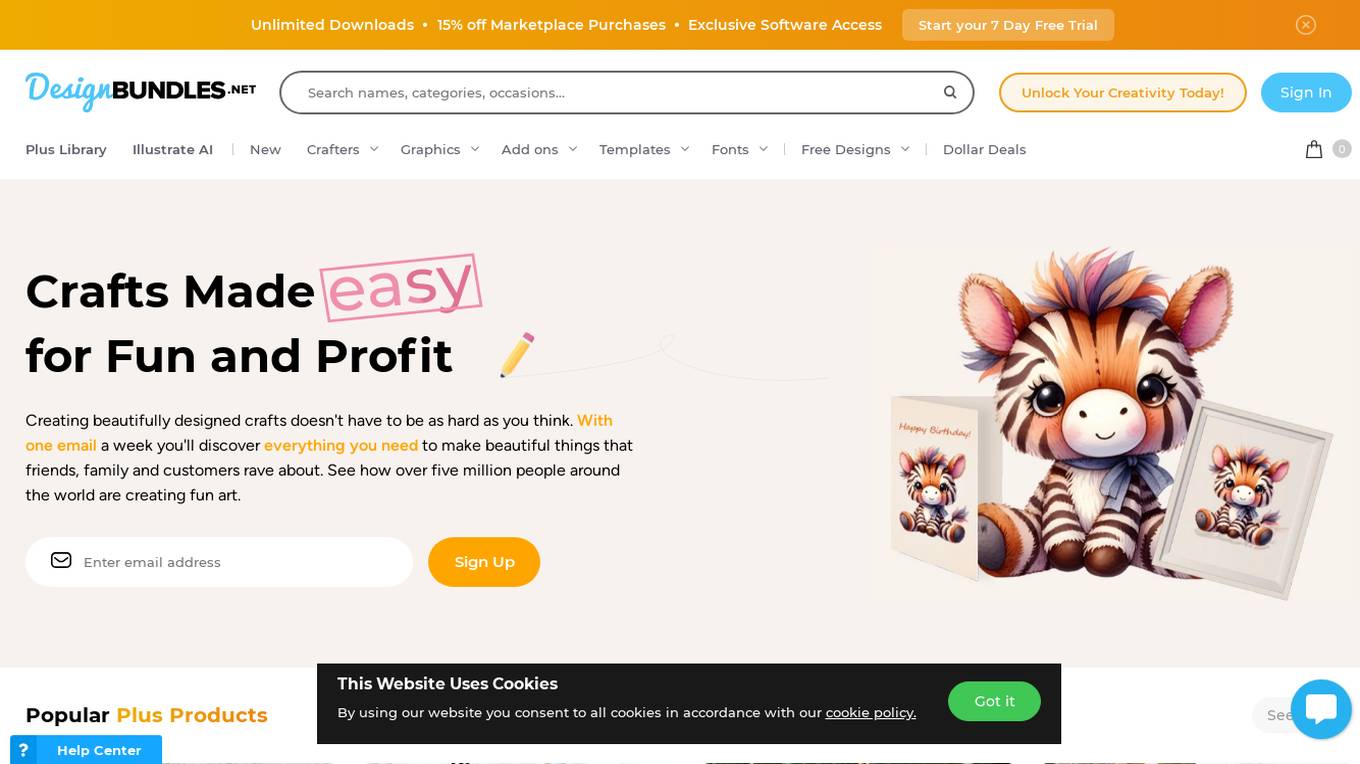
Design Bundles
Design Bundles is a comprehensive online platform offering a wide range of design resources including SVG files, clipart, laser designs, sublimation PNGs, illustrations, photos, and more. Users can access unlimited downloads, exclusive software, and marketplace purchases with various discounts. The platform also features an exclusive AI tool called Illustrate AI, which allows users to generate unique images effortlessly. Design Bundles aims to provide a seamless experience for designers, crafters, and creators to explore their creativity and access high-quality design assets.

Design Wizard
Design Wizard is a free online graphic design software that allows users to create impressive videos and image designs in minutes. It offers a wide range of pre-made templates, premium images, videos, and fonts to help users create unique and professional-looking content. Design Wizard is easy to use and requires no prior design experience. It is perfect for individuals, small businesses, and organizations that need to create high-quality visual content quickly and easily.
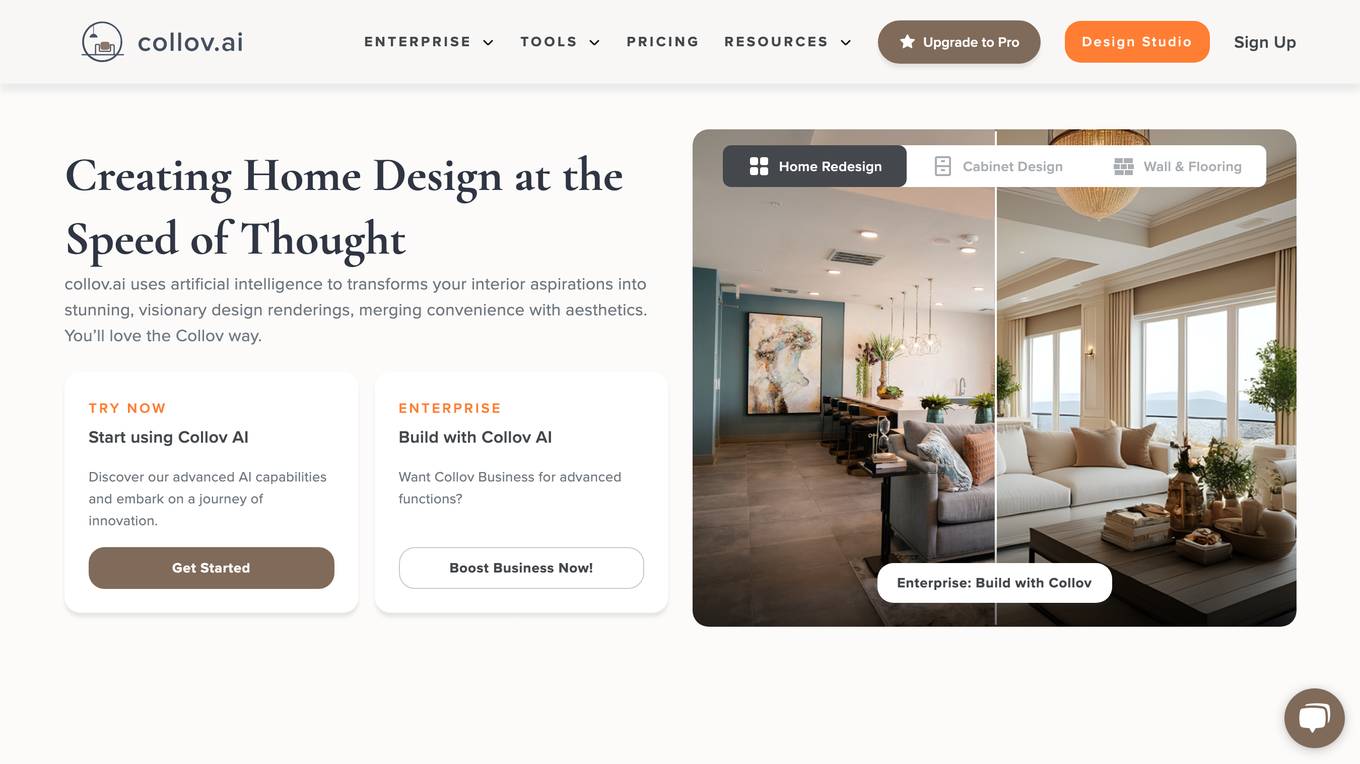
AI Spatial Design
The website offers an AI Spatial Design tool that revolutionizes spatial design by providing advanced intelligence for creating and interacting with spaces. It features high-fidelity 3D modeling, real-time interaction, and transforming photos into visual experiences. Users can customize their buyer journey, boost walk-ins, and elevate living spaces with spatial intelligence. The tool also offers services for cabinet design, flooring, wall fill, countertop fill, furniture replacement, interior design, home redesign, partial remodel, and virtual staging.
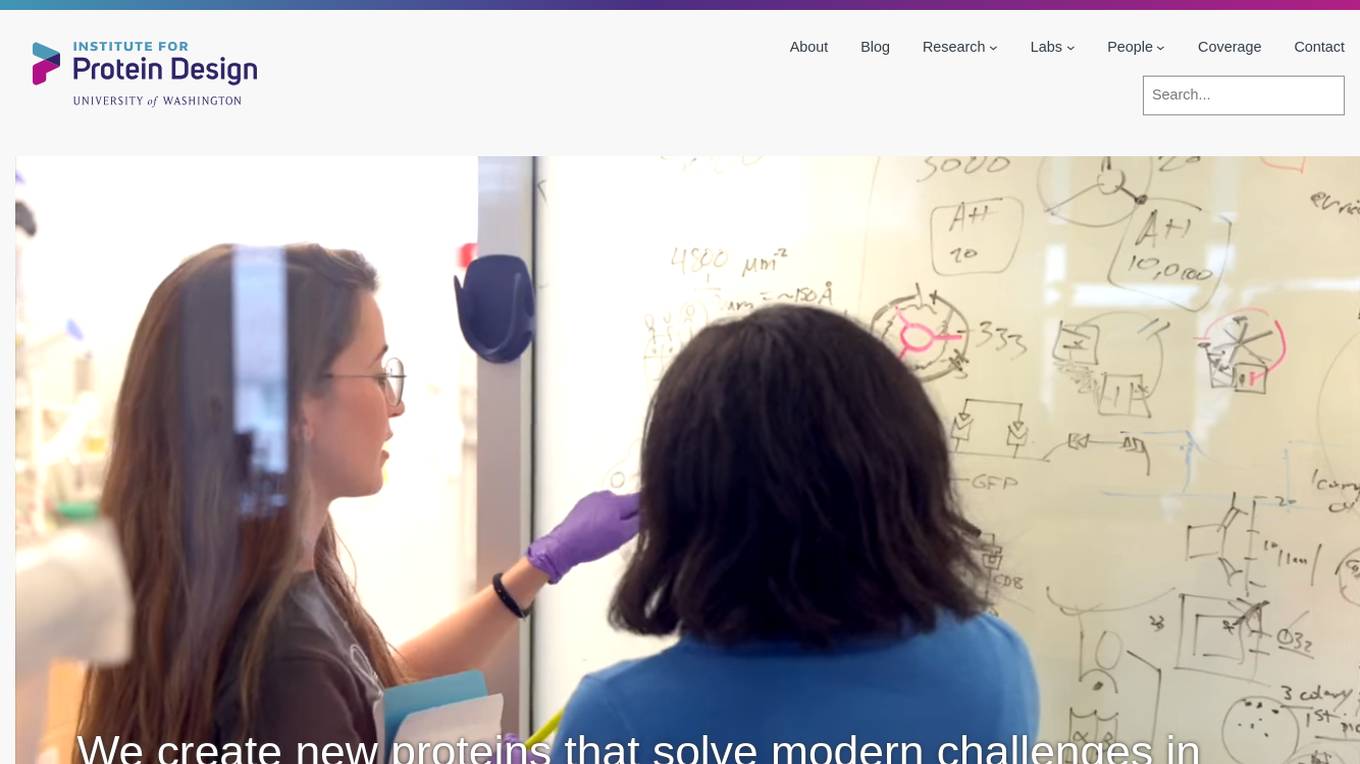
Institute for Protein Design
The Institute for Protein Design is a research institute at the University of Washington that uses computational design to create new proteins that solve modern challenges in medicine, technology, and sustainability. The institute's research focuses on developing new protein therapeutics, vaccines, drug delivery systems, biological devices, self-assembling nanomaterials, and bioactive peptides. The institute also has a strong commitment to responsible AI development and has developed a set of principles to guide its use of AI in research.
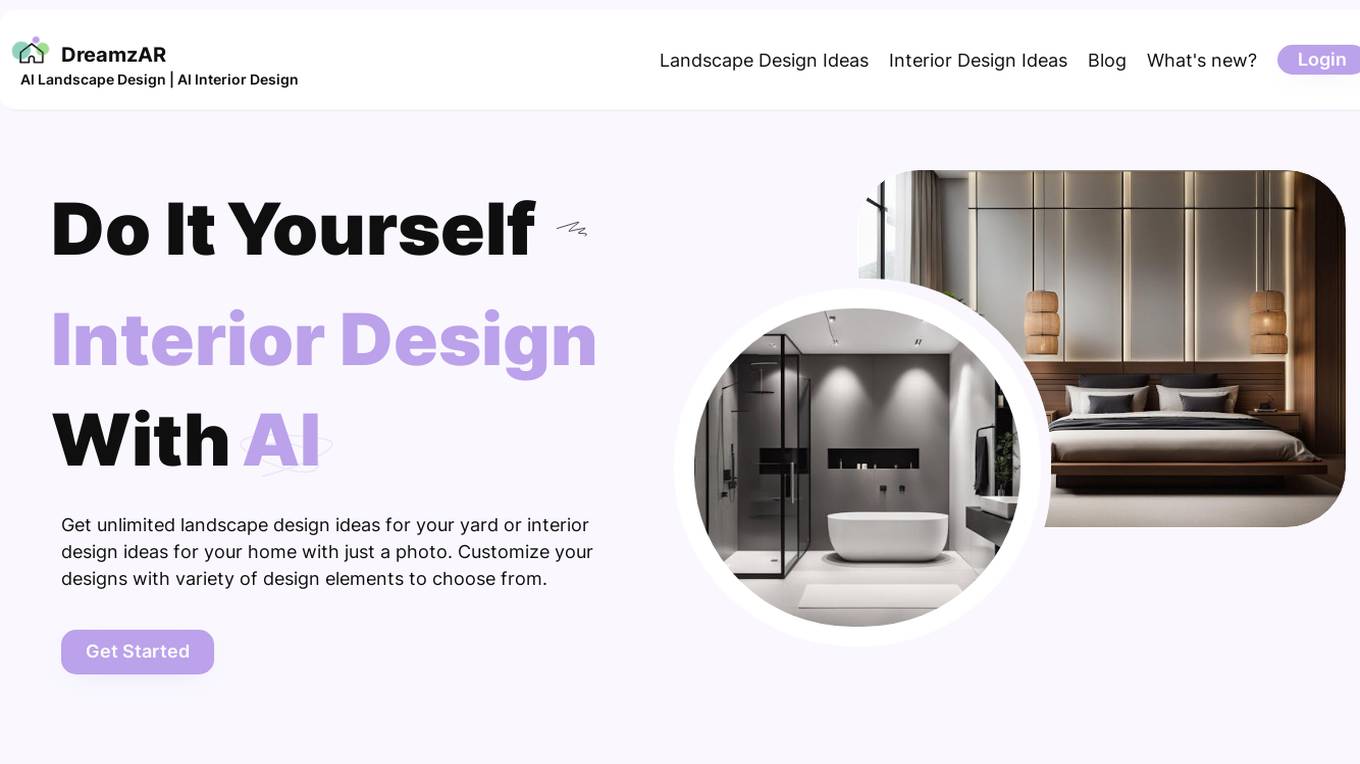
AI Landscape Design Idea Generator
The AI Landscape Design Idea Generator is a web-based tool that helps users create beautiful and functional landscape designs. The tool uses artificial intelligence to generate design ideas based on the user's input. Users can choose from a variety of design styles, plant types, and other features to create a design that is perfect for their needs.

Design Your Pins
Design Your Pins is a custom pin design website that offers personalized pin creation services. The platform provides a user-friendly experience for designing custom pins, with a focus on quality craftsmanship and customer satisfaction. Design Your Pins features an AI Pin Designer tool to assist users in bringing their unique pin designs to life. The team behind Design Your Pins consists of industry experts dedicated to providing transparent and accountable service throughout the custom pin project process. From initial design submission to final delivery, Design Your Pins aims to turn ideas into beautifully crafted pins that reflect the customer's vision.
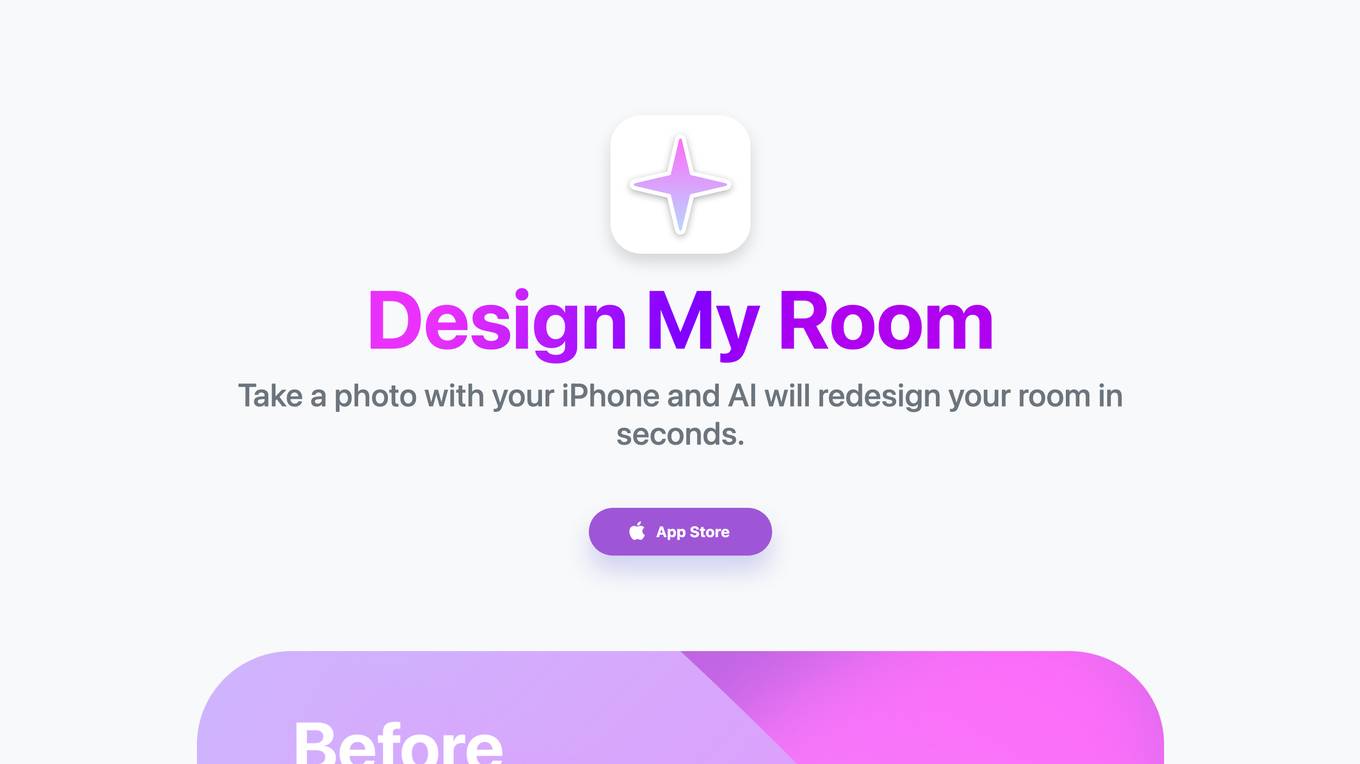
Design My Room
Design My Room is an AI-powered application that allows users to easily redesign their room by simply taking a photo with their iPhone. The app provides 5 different design ideas tailored to the user's room, offering a wide range of unique design inspirations to spark creativity in home makeover projects. With its user-friendly interface and quick results, Design My Room simplifies the process of room redesigning, making it accessible to anyone looking to transform their living space.
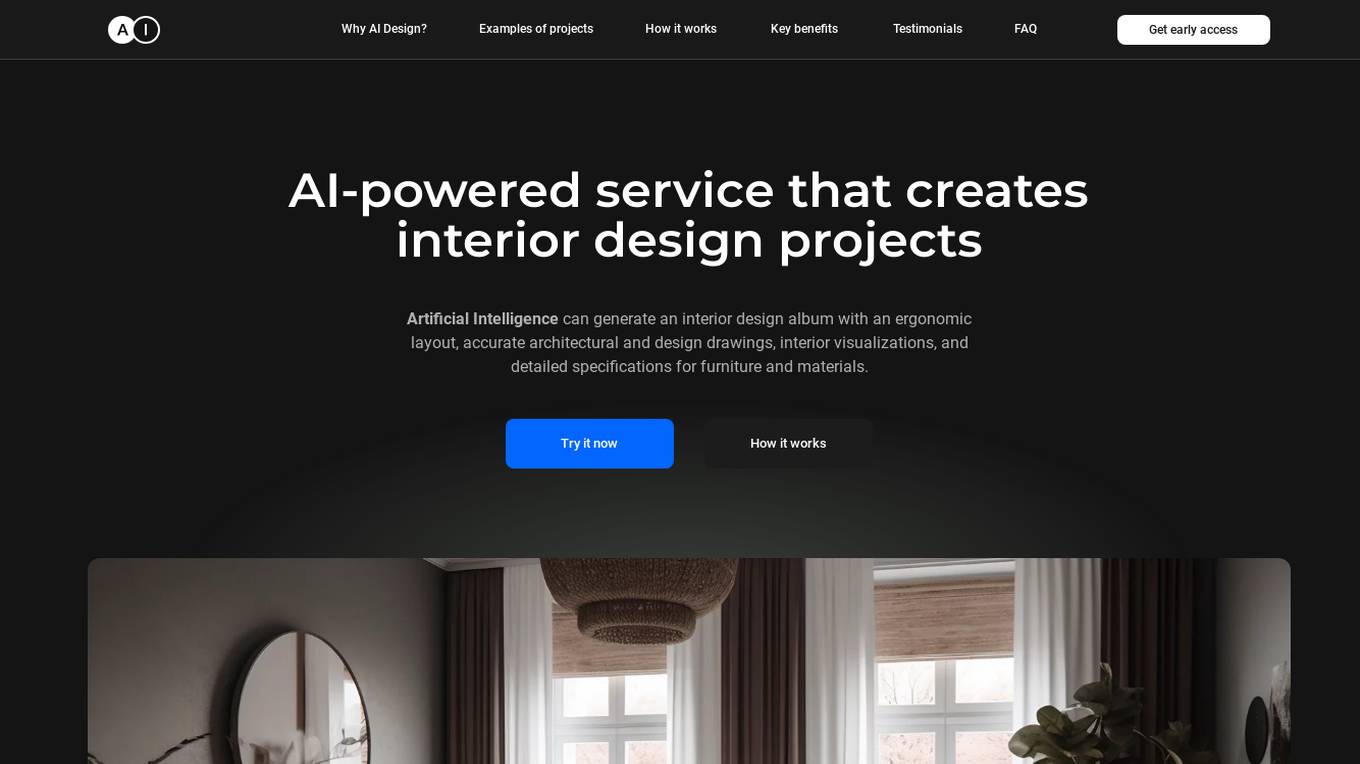
AI Design
AI-Design.pro is an AI-powered service that creates interior design projects. It utilizes artificial intelligence to generate interior design albums with accurate architectural and design drawings, visualizations, and detailed specifications for furniture and materials. The platform streamlines the interior design process, making it more efficient and significantly reducing the time it takes to locate an interior designer. Users can create customized design projects tailored to their specific requirements without the need for a designer, meetings, or phone calls. The service offers a simple and intuitive interface, hundreds of design options, and automated procurement estimates for purchasing furniture and materials.
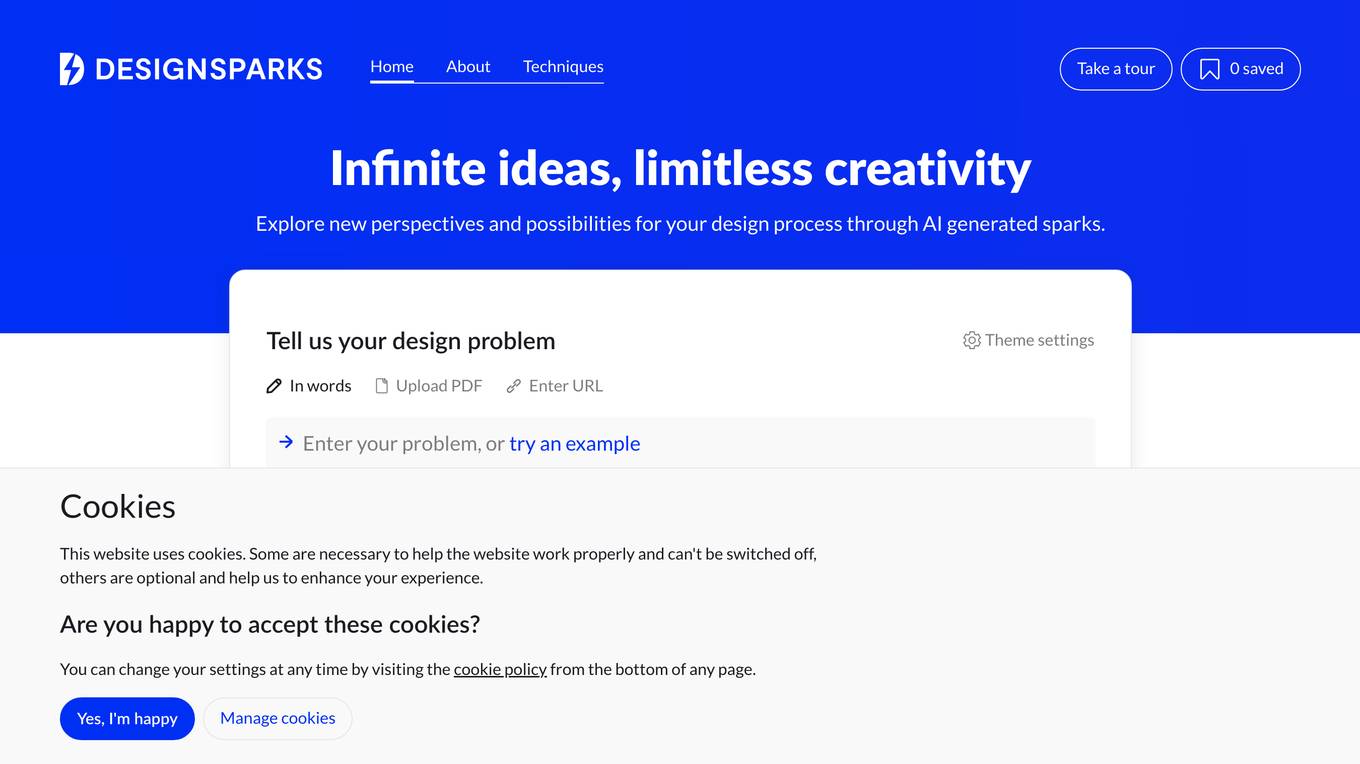
Design Sparks
Design Sparks is an AI-powered application that aims to enhance the design process by generating infinite ideas and fostering limitless creativity. Users can input their design problems or themes, upload PDFs or enter URLs, and let the AI generate sparks to inspire their creative endeavors. The platform provides a user-friendly interface for exploring new perspectives and possibilities in design through AI-generated solutions.
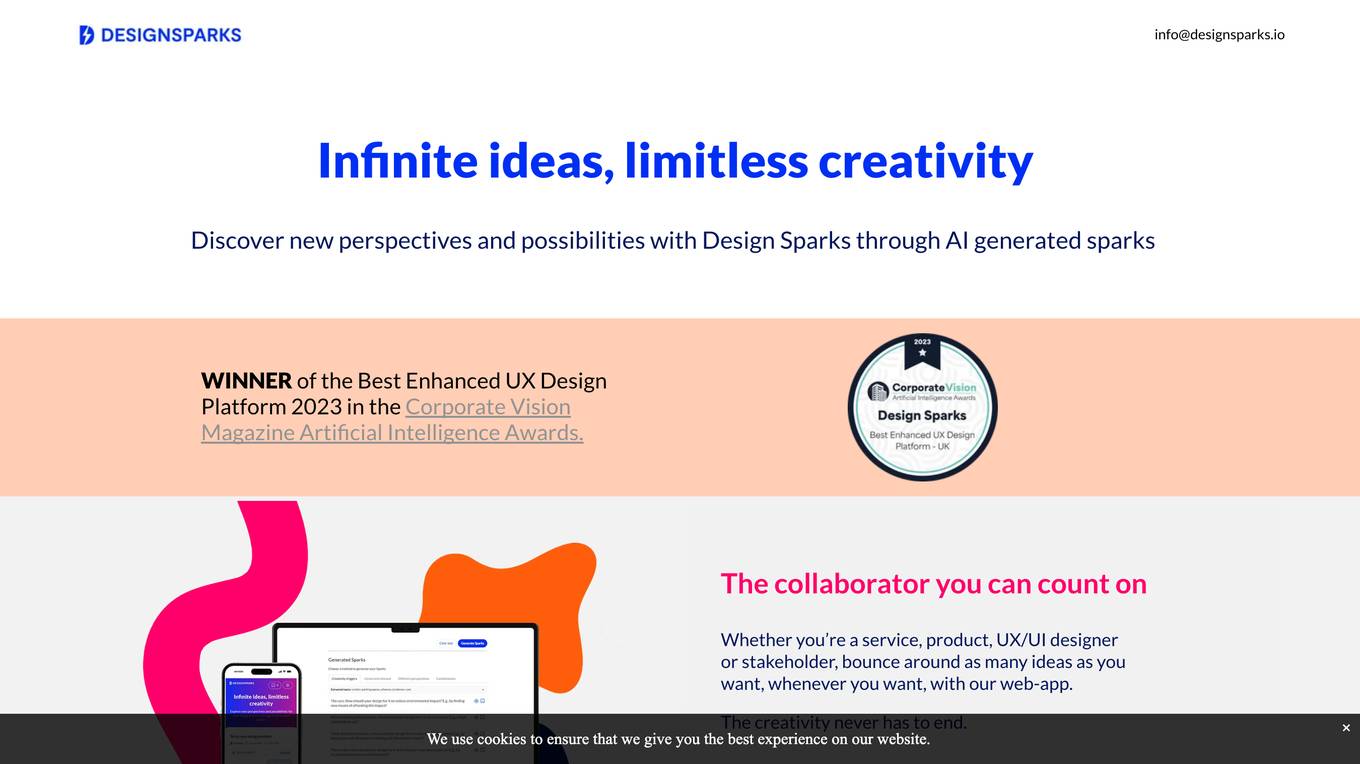
Design Sparks
Design Sparks is an AI-powered creativity tool that helps users generate new ideas and solve design problems. The tool uses a variety of AI techniques, including machine learning and natural language processing, to understand user input and generate relevant ideas. Design Sparks is designed to be used by a wide range of users, from designers and engineers to marketers and business professionals. The tool is easy to use and can be accessed through a web-based interface.
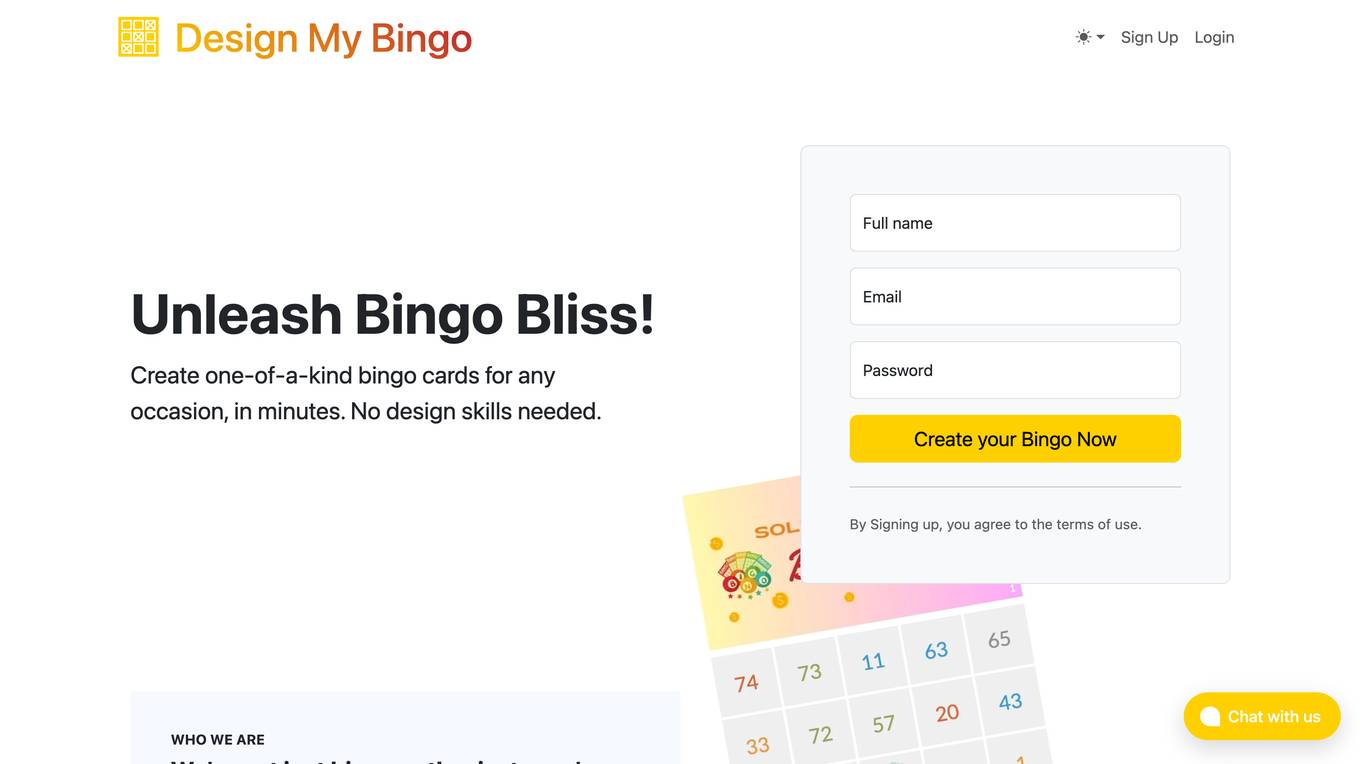
Design My Bingo
Design My Bingo is an online platform that allows users to create custom bingo cards for any occasion. With its user-friendly interface and powerful AI features, Design My Bingo makes it easy to create unique and engaging bingo cards that are tailored to your specific needs. Whether you're hosting a party, teaching a class, or simply want to have some fun, Design My Bingo has you covered.
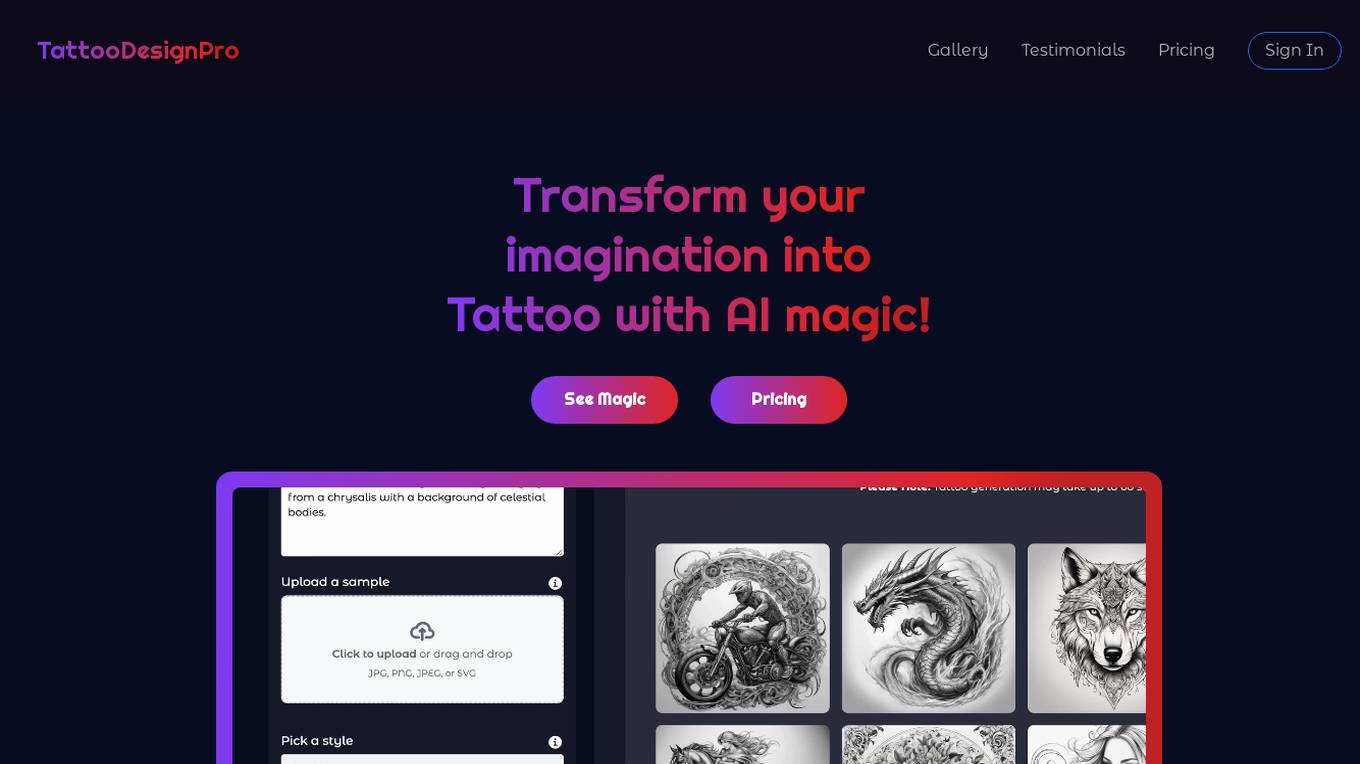
Tattoo Design Pro
Tattoo Design Pro is an AI-powered application that allows users to transform their imagination into stunning tattoo designs in various styles. Whether starting with a simple prompt or uploading an existing sketch, the app uses AI magic to create unique and detailed designs. Customers can experiment with different designs, receive AI-generated suggestions, and easily choose the perfect tattoo design. The app provides a user-friendly interface and a wide range of features to help tattoo enthusiasts and artists in the design process.
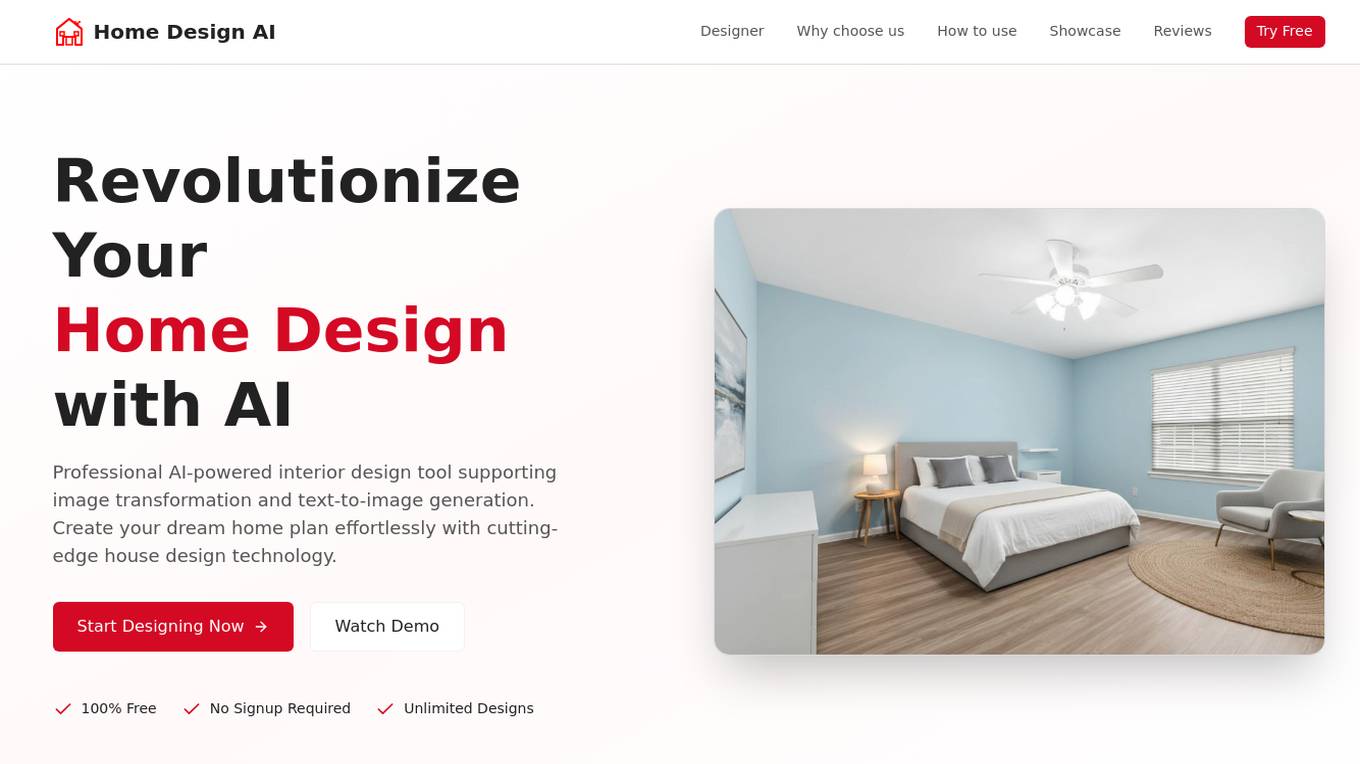
Home-Design.ai
Home-Design.ai is a free AI-powered online home design tool that revolutionizes interior design by offering image transformation and text-to-image generation capabilities. Users can effortlessly create their dream home plans with cutting-edge house design technology, choosing from a wide range of design styles and room types. The tool combines advanced AI algorithms with professional interior design principles to deliver high-quality, lightning-fast design solutions. Privacy protection is guaranteed, ensuring that users' design images and ideas remain confidential.
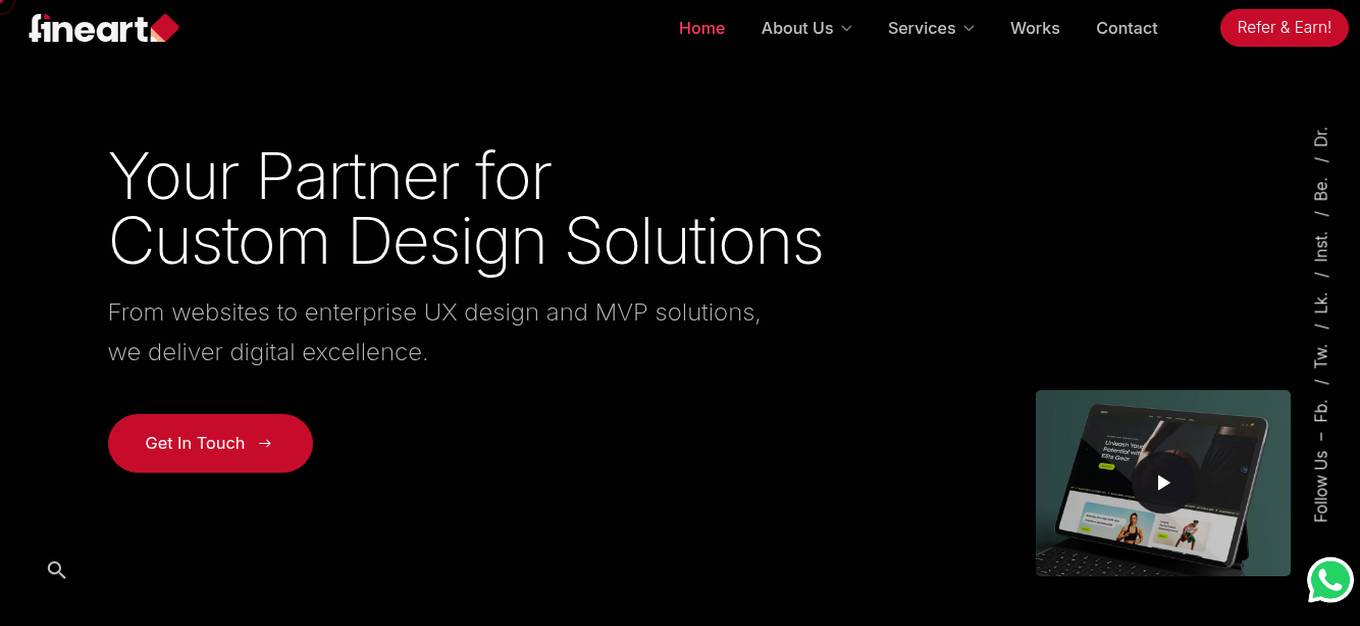
Fineart Design Agency
Fineart Design Agency is a leading digital design agency based in Toronto, Canada, offering innovative and AI-driven solutions for website design, ecommerce development, digital marketing, branding, and rebranding. They specialize in UX research, MVP design, data visualization, and design solutions for healthcare companies, focusing on compliance and standards to ensure exceptional results for every project.

Slack Design Articles
Slack Design Articles is a platform that offers insights, musings, and lessons from the design team at Slack. It covers topics such as mentorship, prototyping, AI-powered features, design engineering, and partnerships in the workplace. The platform aims to provide valuable resources and knowledge for designers and professionals interested in design and technology.
0 - Open Source AI Tools
20 - OpenAI Gpts
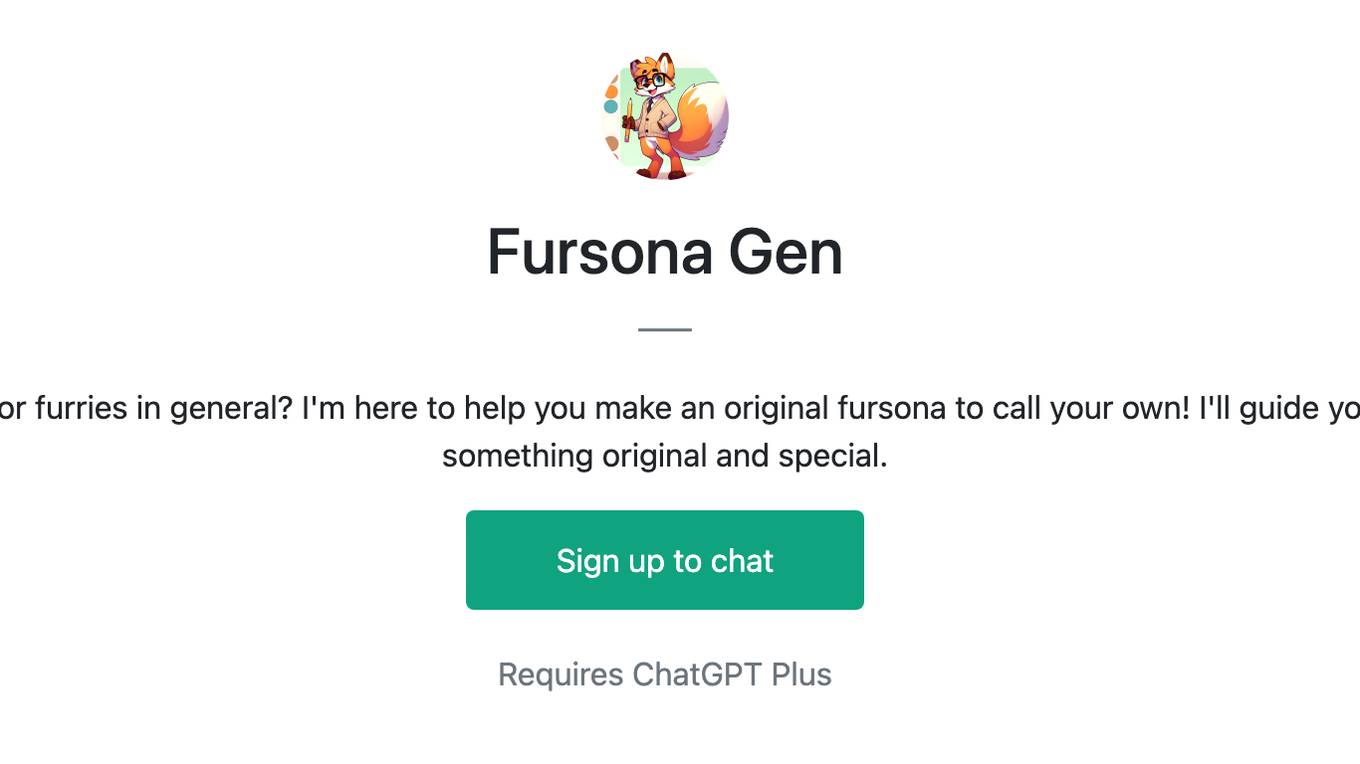
Fursona Gen
Every been curious about the furry fandom or furries in general? I'm here to help you make an original fursona to call your own! I'll guide you through the process and help you make something original and special.
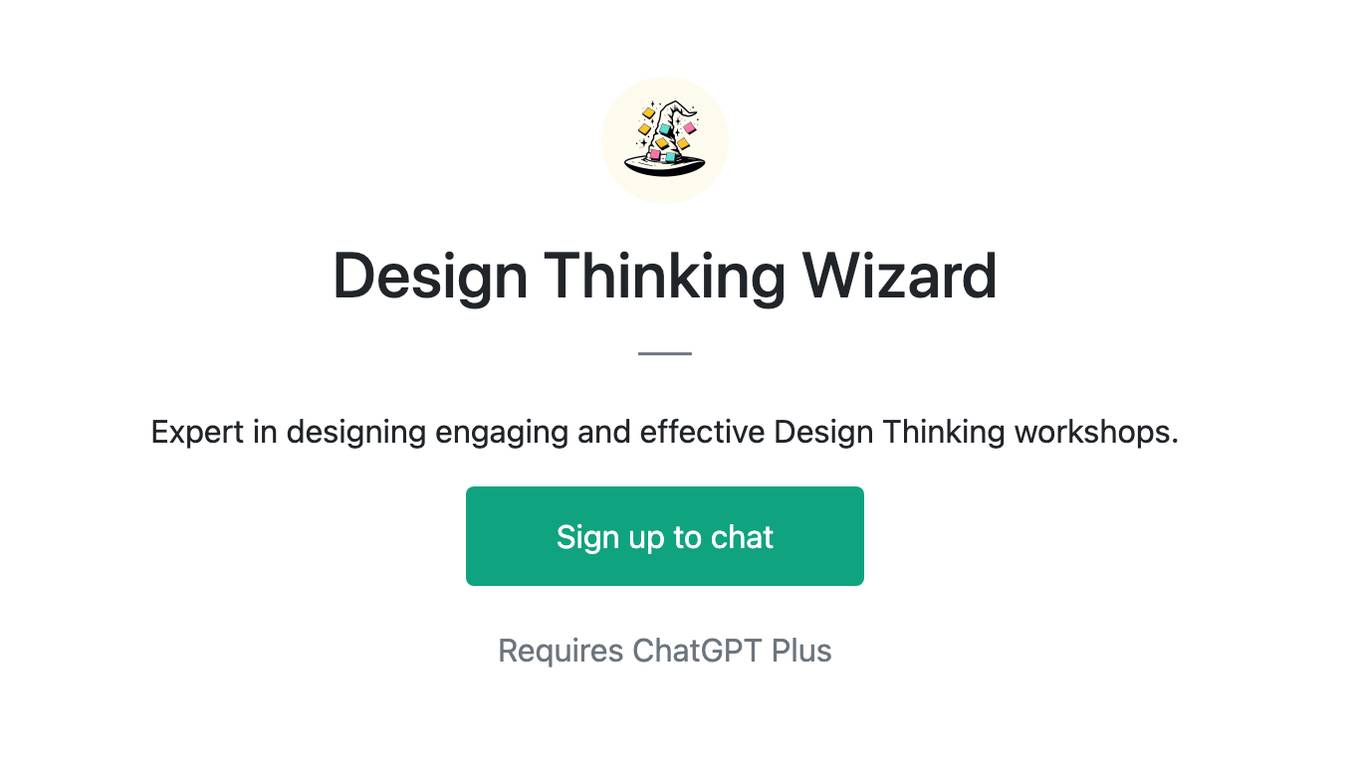
Design Thinking Wizard
Expert in designing engaging and effective Design Thinking workshops.
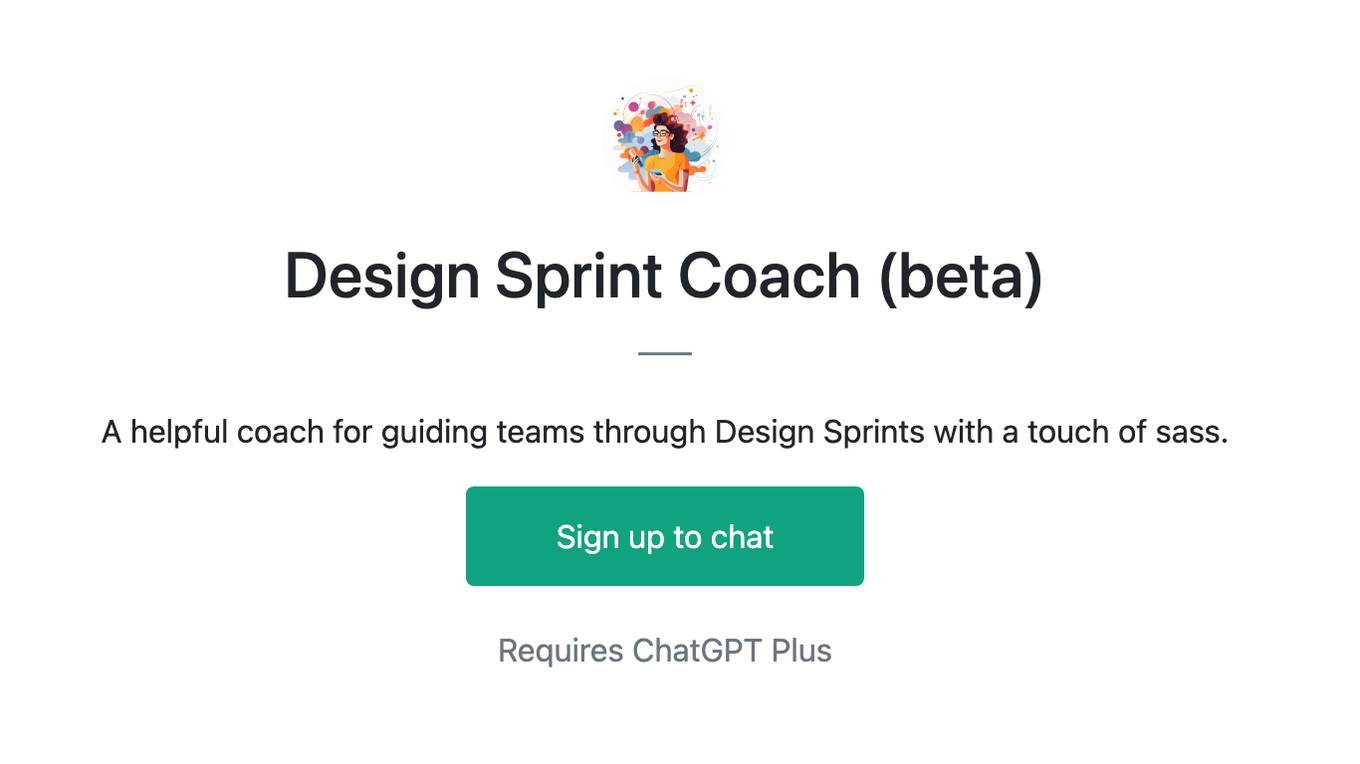
Design Sprint Coach (beta)
A helpful coach for guiding teams through Design Sprints with a touch of sass.

Design Recruiter
Job interview coach for product designers. Train interviews and say stop when you need a feedback. You got this!!



